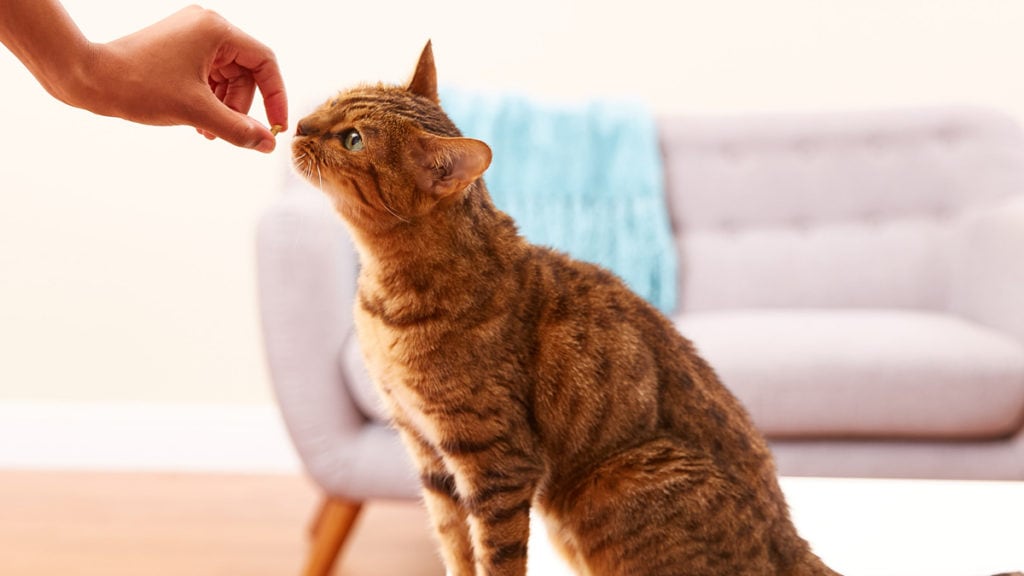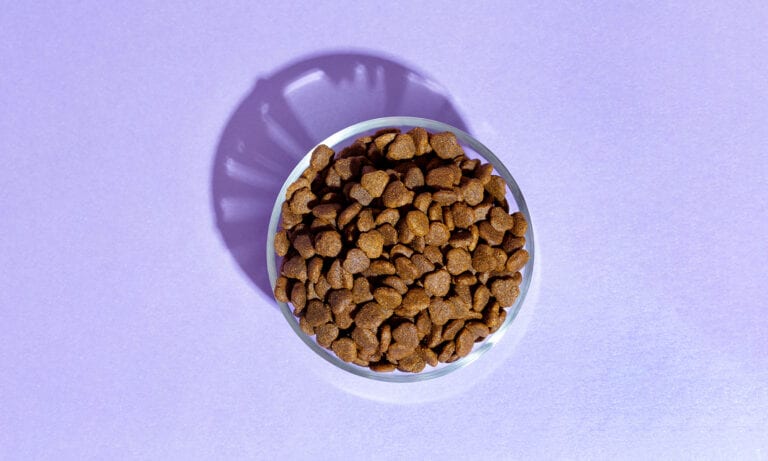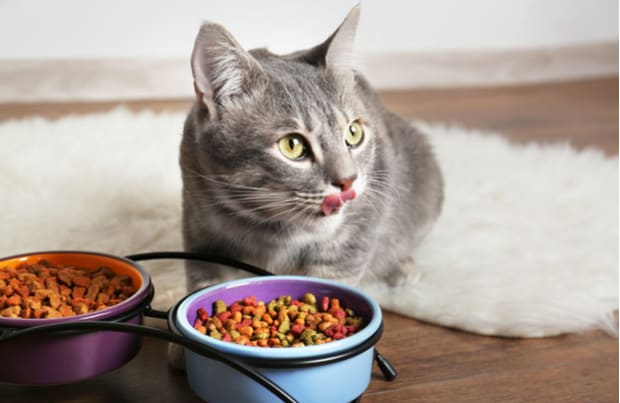When you pour your kitty a bowl of cat kibble, you’re giving her more than the tasty animal meat she craves. Aside from vitamins and minerals, one key nutrient you’re serving her is taurine, an amino acid that is essential to your cat’s health!
So, why is taurine for cats so important? We spoke with a veterinarian to find out the benefits and sources of taurine for cats.
Why Do Cats Need Taurine?
“Taurine is an essential amino acid for cats, which means they cannot synthesize it within their own body and must obtain it through diet,” explains Dr. Rachel Barrack, DVM, CVA, CVCH of Animal Acupuncture in New York City. Amino acids provide the foundation for proteins and are necessary to many systems of the body so that they can function efficiently.
Cats are carnivores, which mean they are designed to survive entirely on protein. Taurine is found in animal-based proteins, and, thus, it is naturally occurring in all cat food. “Taurine is a vital part of cat nutrition needs. It is crucial for normal heart, vision, digestive and reproductive health,” explains Dr. Barrack.
Taurine Deficiency in Cats
Since taurine is an essential amino acid, a lack of taurine for cats can cause severe health problems. Taurine is distributed in high concentrations in several key areas of a cat’s body, including the heart wall muscles, the retina of the eye and the brain. As a result, taurine deficiency in cats can lead to conditions such as blindness, tooth decay and heart issues, including dilated cardiomyopathy, which is heart failure due to enlargement of the heart.
Clinical signs of taurine deficiency in cats develop slowly over time, so most health issues resulting from a deficiency will not become evident until the cat starts showing symptoms of the aforementioned conditions. If a taurine deficiency is suspected, your veterinarian will conduct a series of tests, including blood work, chest X-rays and eye examinations.
Since taurine levels are regulated in commercially prepared cat food, cats that are fed home-cooked meals can risk developing taurine deficiency. If you do decide that home-cooked meals are the right option for your cat, consult your veterinarian to ensure you are providing the right amount of necessary taurine for cats. Supplements like Vetoquinol Felovite or Vetriscience NuCat Multivitamin can be added to your cat’s diet for the best cat nutrition.
Cats with certain diseases may be more likely to develop taurine deficiency, so if your pet is suffering from a chronic disease, regular checkups with your veterinarian are even more important.
Cat Food With Taurine
Here are some options of nutritionally complete cat foods that ensure your cat gets adequate amounts of taurine:
- American Journey Turkey & Chicken Recipe Grain-Free Dry Cat Food. With a recipe that contains 40% protein and additional taurine supplements, American Journey is a great option for the kitties of all ages.
- Blue Buffalo Wilderness Rocky Mountain Recipe with Rabbit Grain-Free Dry Cat Food. In addition to the naturally occurring taurine, this kibble is supplemented with added taurine, so you can be sure that your kitty is getting the nutrients she needs to thrive.
- The Missing Link Ultimate Feline Formula. With added taurine, this supplemental formula supports sustained energy levels, a healthy immune system, optimal digestion and normal weight. It also adds a nutritional boost with cold-processed omegas in a delicious form that cats will love!
Share:














